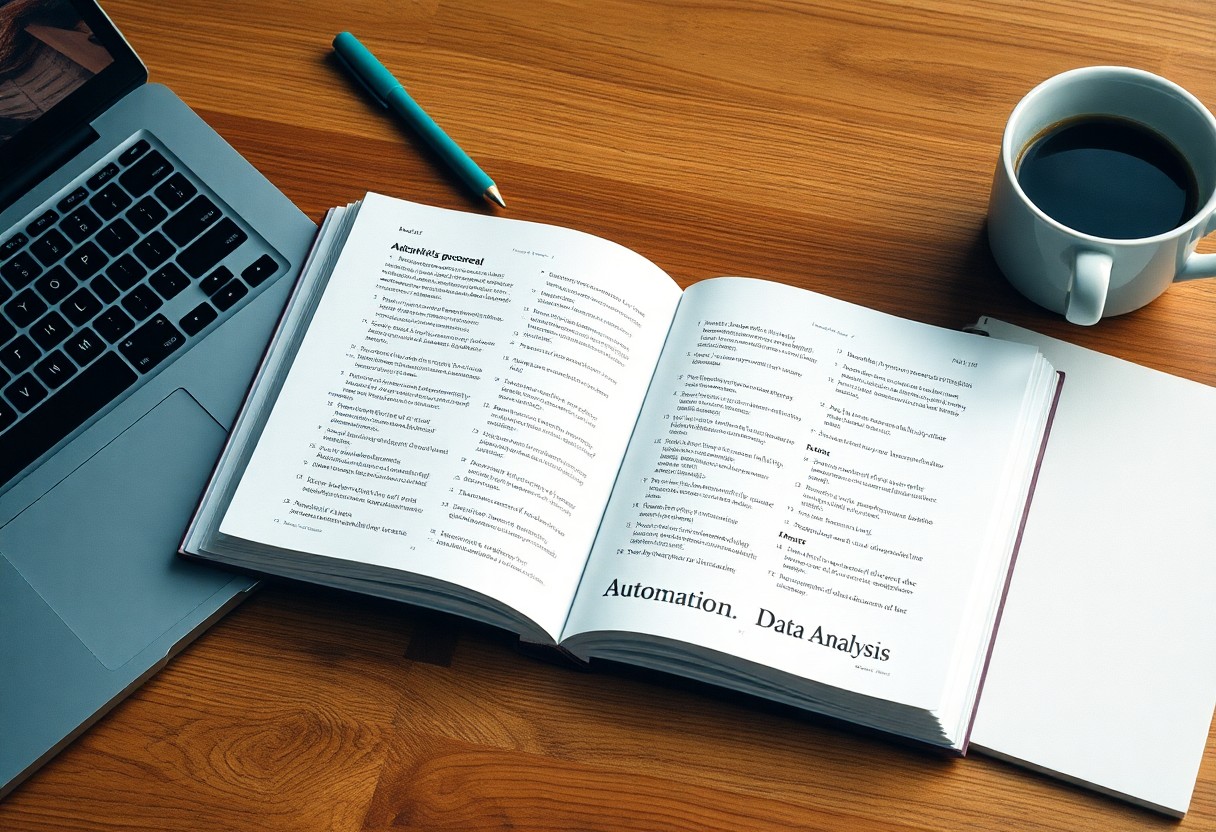
The Marketer’s Guide to AI-Powered Content Optimization.
Most marketers recognize the transformative power of AI in shaping effective content strategies. In this guide, you will uncover how to leverage AI tools to enhance your content optimization efforts, improve audience engagement, and drive measurable results. By integrating AI technology into your workflow, you can refine your content creation process, optimize for SEO, and tailor your messaging to meet the unique needs of your audience. Let’s explore the necessary techniques and tools that will elevate your content marketing game and keep you ahead in a competitive landscape.
The Mechanics of AI in Content Creation
AI is revolutionizing content creation by automating processes and enhancing quality through advanced algorithms. These technologies allow marketers to generate tailored content that resonates with target audiences while saving time and resources. The integration of AI tools in your workflow can elevate your content strategy, enabling you to focus on creativity and engagement rather than tedious tasks.
The Role of Machine Learning in Content Generation
Machine learning analyzes vast datasets to understand patterns and preferences, driving personalized content generation. By learning from user interactions, it tailors messages that align with audience interests, improving engagement rates. With machine learning, you can create content that not only attracts but also retains your audience by addressing their specific needs and behaviors.
Natural Language Processing: Breaking Down Barriers
Natural Language Processing (NLP) enables machines to understand, interpret, and generate human language. This technology breaks down communication barriers, allowing for dynamic content that feels organic and relevant. By utilizing NLP, your content can become more relatable and engaging, enhancing user experience.
NLP not only enhances your content’s clarity but also allows for sentiment analysis, helping you gauge audience reactions in real-time. By analyzing how users interact with text, you can refine your messaging and adjust tone accordingly. For instance, platforms utilizing NLP can detect emotions such as joy or frustration in user feedback, guiding you to modify your content strategy to better meet your audience’s needs. In practice, this means crafting headlines or descriptions that resonate more effectively, resulting in higher engagement and conversion rates.
Crafting Tailored Content through Data Analysis
Data analysis empowers marketers to create content that resonates with their audience by identifying trends and preferences. By delving into analytics, you can uncover what topics, formats, and tones your target audience engages with the most. Adjusting your content strategy based on these insights ensures that every piece you produce is not only relevant but also impactful, leading to increased engagement and conversions.
Leveraging User Behavior Insights for Optimization
User behavior data reveals patterns that inform content decisions. Analyzing metrics such as time spent on page and click-through rates allows you to determine which elements captivate your audience. By focusing on these insights, you can tailor your content to meet their specific needs and preferences, enhancing the overall effectiveness of your marketing strategy.
Personalization at Scale: AI-Driven Strategies
AI-driven strategies enable you to deliver personalized content to diverse audience segments efficiently. By utilizing machine learning algorithms to analyze user data, you can predict preferences and customize messages without sacrificing scalability. This approach not only enhances user experience but also drives higher engagement and conversion rates, ultimately contributing to brand loyalty.
Implementing AI-driven personalization at scale involves harnessing algorithms that analyze vast amounts of data quickly, allowing for real-time adjustments to content distribution. For example, platforms like Dynamic Yield and Adobe Experience Cloud offer tools that create personalized content experiences based on user behavior, demographics, and preferences. By integrating these solutions, you can automatically adjust headlines, images, and recommendations, ensuring that every visitor encounters the most relevant content tailored specifically for them. This data-centric approach fosters deeper connections with your audience, leading to improved retention and advocacy over time.

Enhancing SEO Effectiveness with AI Tools
AI tools significantly streamline the process of optimizing your content for search engines, allowing you to improve visibility and engagement. These advanced technologies analyze vast amounts of data, identifying trends and patterns that inform your SEO strategy. By leveraging AI, you can not only refine your keyword use but also optimize your content structure, enhancing both user experience and search rankings.
Predictive Analytics and Keyword Optimization
Predictive analytics enables you to anticipate keyword trends based on historical data and emerging search behaviors. By utilizing AI-driven insights, you refine your keyword strategy, focusing on terms that are likely to increase traffic in the future. Tools like Google’s AI-based keyword planner can suggest relevant phrases, ensuring your content aligns with user intent and search patterns.
Content Distribution: AI Algorithms that Amplify Reach
AI algorithms optimize the distribution of your content across various platforms, enhancing its visibility and engagement. By analyzing user data and engagement metrics, these algorithms determine the best channels and times to share your content, targeting the right audience effectively. This precision in distribution not only increases reach but also boosts your content’s overall performance in terms of shares and interactions.
The use of AI algorithms in content distribution can lead to significantly higher engagement rates. For example, platforms like Facebook and LinkedIn utilize complex algorithms to tailor content delivery based on user interactions, preferences, and behaviors. When you harness this technology, you’re better positioned to reach specific demographics during peak engagement times, resulting in higher click-through rates and more effective brand messaging. This strategic approach helps maximize your content’s potential, turning casual viewers into loyal followers.
A/B Testing and Continuous Improvement in Real-Time
A/B testing allows you to assess different content variations in real time, ensuring your marketing strategies are continually refined. By placing two or more versions of content against each other, you can measure performance based on user engagement metrics, conversions, and other KPIs. Engaging your audience with A/B tests helps you identify the most effective messaging, layout, and calls to action, enabling you to make data-driven decisions that elevate your content marketing initiatives.
Harnessing AI for Multivariate Testing
AI enhances multivariate testing by automating the analysis of multiple variables simultaneously. You can effortlessly compare numerous combinations of headlines, images, and layouts to determine which arrangement performs best. This sophisticated approach saves time and delivers insights that manual testing simply cannot replicate, allowing you to optimize your content for maximum impact while targeting specific audience segments.
Interpreting Data: Making Informed Adjustments
Analyzing A/B test results reveals critical insights into user preferences and behaviors. By closely examining the data, you pinpoint which elements resonate with your audience and which fail to engage. Implementing these insights enables you to adjust your content strategies effectively, aligning them more closely with your audience’s needs, ultimately driving better results. Continuous interpretation of test results paves the way for a more responsive content strategy.
Interpreting A/B testing data requires a keen eye for patterns and anomalies. For instance, if a specific headline generates significantly higher engagement but fails to convert, it might indicate a disconnect between user attraction and the content’s relevance. Utilizing advanced analytics tools can further enrich your understanding by segmenting users based on demographics or behaviors. This attention to detail allows you to adapt content swiftly, ensuring your strategies remain relevant in an evolving market landscape.
Ethical Considerations and Authenticity in AI Usage
Utilizing AI in content creation raises numerous ethical questions, particularly around authenticity and originality. You must navigate issues of ownership, consent, and bias, ensuring that your content reflects genuine insights rather than derivative conclusions. Upholding transparency with your audience about AI’s role in creating content fosters trust while adhering to ethical standards. Balancing efficiency with integrity in your marketing strategy will differentiate you in a landscape increasingly populated by AI-generated material.
The Fine Line Between Assistance and Automation
AI can enhance your writing process, but over-reliance may strip your content of its unique voice. You should aim to leverage AI as an assistant, where it generates ideas and insights, while you retain the creative control. Tools like GPT can effectively draft outlines or suggest topics, yet your discerning touch is imperative in crafting authentic narratives that resonate with your audience’s values and experiences.
Building Trust: Maintaining Authentic Voice Amidst AI
Authenticity becomes a challenge when AI tools produce content that may sound generic or detached. Your audience seeks genuine interaction, and allowing AI to overly influence your voice risks losing that connection. Personalized storytelling and real-life examples will keep your tone relatable, reminding readers of the human element behind the technology.
To maintain an authentic voice while utilizing AI, you should blend machine-generated insights with your unique perspectives and experiences. Sharing personal anecdotes or case studies can humanize your content, making it relatable. For instance, if AI suggests topic themes based on trending data, you have the opportunity to infuse those ideas with your personal touch, weaving in your own stories or emphasizing the emotional aspects that resonate with your audience. This combination not only upholds authenticity but also strengthens the relationship you build with your readers, presenting a harmonious balance between innovation and individuality.
Summing up
As a reminder, leveraging AI-powered content optimization significantly enhances your marketing strategy. By utilizing intelligent tools, you can analyze data, tailor content for your audience, and improve engagement. Embracing these technologies enables you to stay ahead in a competitive landscape, ensuring your efforts are effective and measurable. Implementing these insights will not only elevate your content’s performance but also foster deeper connections with your audience. With AI as your ally, your content marketing can reach new heights of success.


